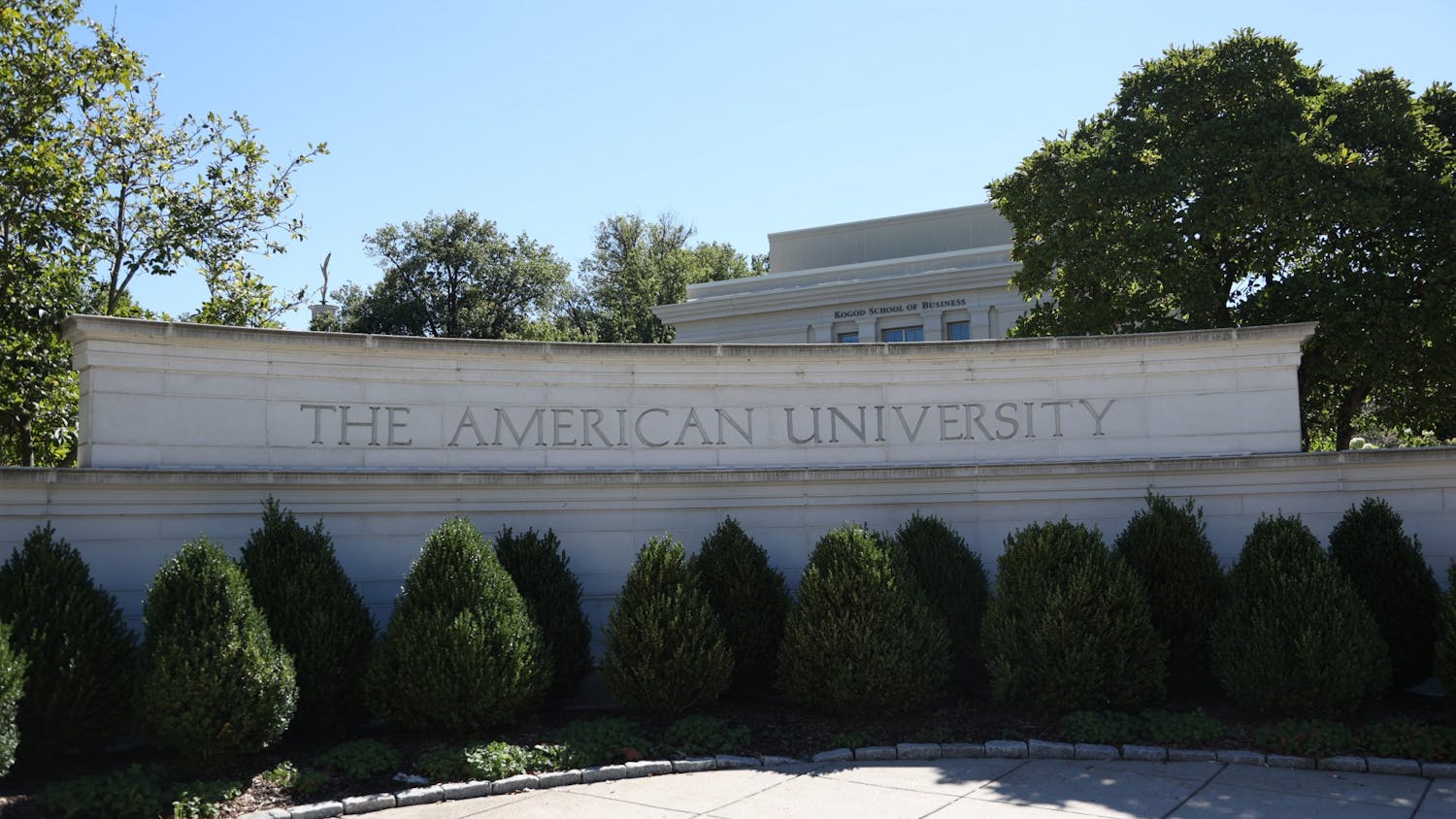Correction Appended
Bon Appetit, AU's on-campus food management service, has partnered with an environmental studies class to study the environmental effects of removing trays from the Terrace Dining Room.
College of Arts and Sciences professor Kiho Kim's section of Environmental Issues has conducted five out of six planned sampling sessions to measure the amount of food students take with and without trays. The class will announce whether or not tray removal contributes to reducing waste on Earth Day - April 22.
"Other universities have gotten rid of trays and when they did, they found they saved 30 percent more water and students took less food," said Diana Hill, a student in the class and a sophomore in the College of Arts and Sciences.
The class is based on producing the smallest environmental footprint possible, examining issues such as industrial food production and local farming, Hill said.
"Based on my personal experience, removing trays can go really far in reducing waste," said Marc Pickering, marketing director for Bon Appetit. "For example, I noticed that lots of untouched fruit was being left on trays, and once students touch the fruit we can't put it back."
TDR produces 400 pounds of waste per week. The waste comes from food production and leftover food. Bon Appetit is also working with TDR's kitchen staff to reduce food dropped on the floor, in addition to working with students on the trayless initiative, Pickering said.
Although the data from the trayless initiative is not yet available, it is already clear there's been a decrease in waste since the study began six weeks ago, he said.
An upper-level School of Communication course is surveying students to gather reactions for the trayless initiative, according to Alison Cheyne, a senior in SOC and a student in the class. The public relations course also aims to correct misperceptions about the trays and Bon Appetit through Facebook and posters.
"The trays are at TDR and part of AU because of previous contractors that left them behind" she said. "So they've been owned by AU for years. When students use the argument that we pay $40,000 a year to have a tray, they're not really paying $40,000 for a tray, the trays were already there."
The reasons to go trayless include not only waste reduction but energy reduction as well, Cheyne said.
This year's tray removal study has received some negative reactions from students, but the public relations class is working to inform students why TDR is trying to go trayless, she said.
"It doesn't actually bother me, it's just convenience, being able to put more than a couple things and I don't have the hands to carry cups and plates and things," said Ben Corson, a sophomore in the Kogod School of Business.
Bon Appetit removed trays from TDR on several occasions last semester, but students did not respond well to the change, according to Pickering.
The reaction could have been because students did not understand why Bon Appetit removed trays, he said.
"I think it's interesting, I would never think of that," said Chelsea Babcock, a freshman in CAS. "When I saw the signs that it was trayless, I thought there was something wrong with TDR again and they couldn't use trays."
Bon Appetit advertises itself as the first of its kind to tackle responsible dining.
The company started its "Reducing Waste" program three years ago, but AU's Bon Appetit service began advertising the campaign last semester.
You can reach this staff writer at klitvin@theeagleonline.com.
Correction: In "Class examines TDR waste," The Eagle incorrectly reported that TDR produces approximately 400 pounds of waste per week. In recent months, TDR has produced upwards of 700 pounds of waste per week.




